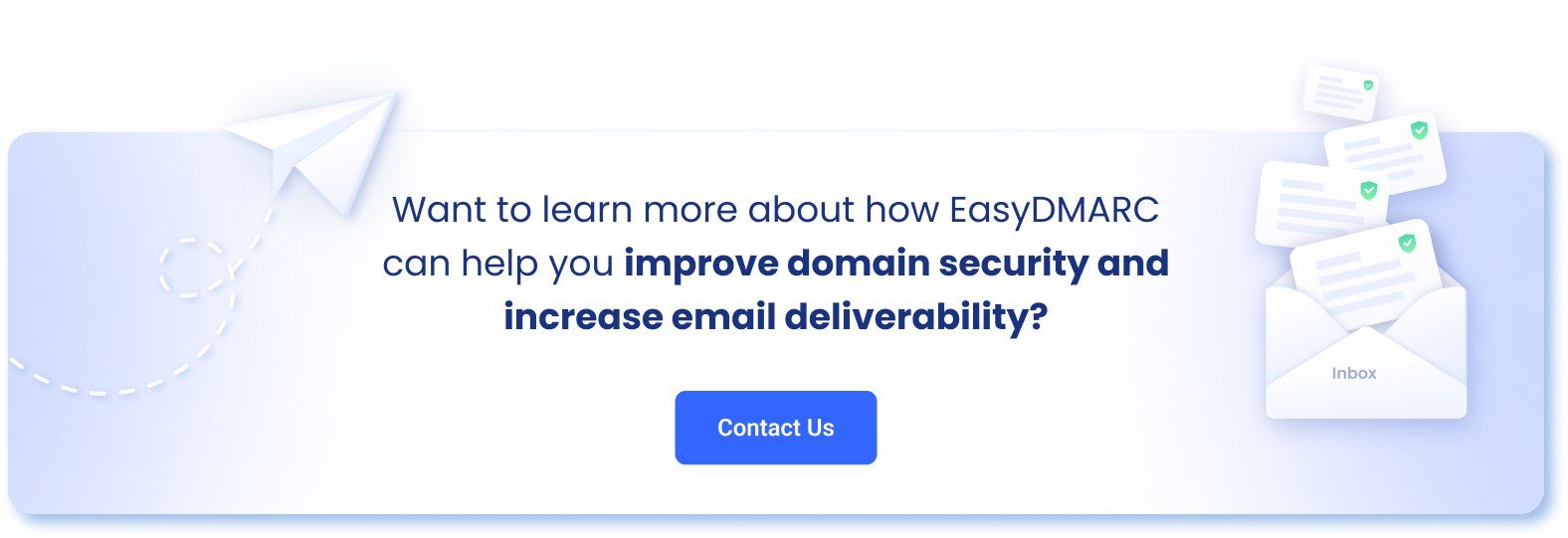In today’s cyber world, there’s no denying that malicious actors target individuals rather than infrastructure directly. It’s much easier to find a weak link within a company and get access to information and assets through that route. When it comes to cyberattacks, no one is safe.
According to Deloitte, 91% of all cyberattacks begin with a phishing email to an unsuspecting target. Cybercrime is more than just the high-profile attack cases we read in the news. Small and medium-sized businesses (SMBs) are also targeted with the same attacks as large enterprises.
Hence, businesses of all sizes need secure email solutions. For small businesses in particular though, mitigating cyberattacks is key to survival.
This guide provides several ways to protect your business via secure email. But before we dive into that, what is secure email for small business anyway and how can you achieve it?
What is Secure Email?
We’ve talked about business email accounts before, so you already know how they differ from your regular old Gmail, Microsoft, or Yahoo services. Here, we’re talking about protecting the infrastructure that contains all your business emails.
Email security consists of a few components, including email encryption, secure email gateways, and authentication protocols like SPF, DKIM, and DMARC.
To cover all these aspects, especially the encryption part, there are a few services in the market. A secure email service for a small business works much like regular email, but with a few security enhancements. The Standard Mail Transfer Protocol (SMTP) sends emails as plain text, thus they are extremely vulnerable to outside attacks.
Neither IMAP nor POP3 protect files stored in the email server. Not only do you need secure message transfer, but the received messages must be stored in a secure place, too.
You might be able to secure your email account from hackers via two or multifactor authentication, but you need another layer of defense to protect your data from unauthorized access. Secure email providers for small businesses offer this added protection.
How does secure email work? Well, it’s simple. When you send a message to a recipient, the secure email algorithm determines whether it needs to be encoded depending on the set criteria. If it meets the requirements, the email is encoded and sent to the recipient.
Why is Secure Email Important?
Businesses without secure email are easy targets for email phishing attacks. Email security makes things a little more difficult for attackers, helping to mitigate cyberattacks via email.
In most cases, email attacks try to lure users into approving a fake transfer request, divulging confidential information, or downloading malicious software that can infect your network or hold your data to ransom.
No matter the size of your business, a successful email phishing attack can cause catastrophic damages, including financial losses, downtime, and reputation damage. With secure email, third parties or cyberactors find it challenging to hijack your communications , thereby reducing your risk exposure.
How to Ensure Secure Email for Small Businesses
Most SMBs neglect email security because of various factors, including lack of budget and IT personnel. Some even use personal emails for work, dispersing their ability to treat the domain and email infrastructure as a holistic entity. In such cases, it would be pointless to even talk about implementing enterprise-class security infrastructure.
Sure, the internet is full of tips and tricks for securing your business email. Still, you only need three steps to achieve your secure email goals: adequate prevention, up-to-date education, and swift, impactful responses.
Prevention
From the second you set up your small business email “family,” you have to think big. No matter how many email accounts you have, adhering to protocols, doing regular backups, and establishing other best practices will set you up for success. Remember: preventing a disaster is always easier than dealing with the aftermath.
- Create a Cybersecurity Plan: Small businesses should prepare themselves for the worst. Never assume you can’t be a target of cybercrime. Prepare a disaster management plan with policies, technologies, procedures, and strategies to address email security and ensure fast responses to attacks.
- Make Regular Backups: Small businesses should make regular backups of critical data that drives their daily operations. Payment details, customer information, quotes, and orders are just some examples.
- Use Strong and Secure Passwords: Choose a password that’s difficult to guess. It should contain at least 12 characters, including numbers, symbols, lower-case and capital letters. Avoid using the same password across multiple accounts.
- Use Multi-Factor Authentication: Implement multi-factor authentication to increase your business’ email security. Here, you need more than just your password to access your account. So even if your password is compromised, attackers will find it difficult to access your account.
- Implement an Email Retention Policy: Set up a policy for employees to remove any email that’s not needed for business operations. You can set a 60–90-day standard and enforce it to ensure compliance.
- Use Email Encryption: Email encryption is essential. It ensures that only authorized users can read your messages. You can install an email certificate like Pretty Good Privacy (PGP) or a software plugin on your email client.
- Set Up Email Authentication Protocols (SPF, DKIM, DMARC): Implementing email authentication protocols like SPF, DKIM, and DMARC helps prevent phishing, email spoofing, and other email security threats.
Education
Your business’ email security is only as strong as its weakest link—the human. Email phishing attackers use different social engineering tactics to manipulate people into doing what they want. Thus, it’s critical to get your employees invested and involved in your secure email strategy.
- Educate Your Employees: Most email attacks are successful because someone clicks a link or performs an action. That’s why it’s crucial to educate yourself and your employees on the signs of phishing emails and their devastating effects.
- Practice Healthy Cybersecurity Habits: Educate your staff on healthy cybersecurity habits to ensure better email security. Some of these include:
-
- Thinking twice before clicking on links from unknown sources
- Confirming requests for urgent transfers or private information
- Keeping e your devices and browsers up-to-date
- Reporting any suspicious emails
Response
With clients’ trust, reputation, and revenue at stake, it’s vital that small business owners detect and prevent incidents in progress early on. By creating a security incident response strategy, you can prepare for any attacks and swiftly address them. Ensure your employees know the steps they must take if an incident or a breach happens.
Final Thoughts
Attackers always target small and medium-sized businesses with fraudulent emails, aiming to steal sensitive data or infect the network with malware. Although phishing attacks are increasingly common, implementing the best secure email for small businesses goes a long way toward protection.
Don’t forget to backup critical business data regularly, and use strong passwords and MFA authentication on your account. Implement SPF, DKIM, and DMARC email authentication protocols to strengthen your email security and educate your employees on how to identify and prevent malicious emails.


